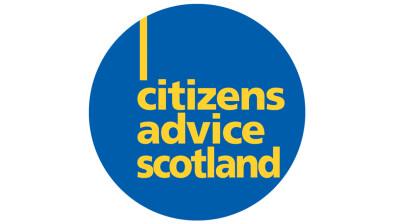Demand for food bank advice rose 11% in year to April, research finds

Demand for food bank advice across the Citizens Advice network increase by 11% in the year to April 2023, new data from Citizens Advice Scotland (CAS) has revealed.
The charities April 2023 data report also found that Utilities advice which increased by 13% in the past year, Finance and Charitable Support advice by 16%, and housing advice by 11%.
Advice on local authority rent arrears increased by 56% and social housing rent arrears by 46%, suggesting an increase in need for advice around certain types of debt.
Across online advice pages, there were 206,230 users, 77% of which were new. From April 2022 to April 2023 there was an 18% increase in views of debt and money advice pages, and a 15% increase in benefits page views.
CAS warned of a “direct link” between higher energy prices and food inflation and increased demand for food insecurity advice, and called on policymakers to not be fooled into thinking a lower energy price cap and inflation falling means the crisis is coming to an end.
CAS social justice spokesperson David Hilferty, said: “Our April data shows the impact the cost-of-living crisis has had in the past year, with advice around utilities, housing and food insecurity all up significantly.
“It is essential that policymakers don’t view headlines about inflation and the energy price cap falling and think that this crisis is over.
“CABs are on the frontline of this crisis and what they see is a direct link between high energy bills coming through the letterbox and empty cupboards in the kitchen. Many people will have been forced into debt during this crisis and are now trapped in a vicious cycle – their incomes couldn’t match the cost of their bills so they went into debt to pay the essentials and now their income is reduced further by debt repayments.
“April saw inflation linked increases to social security finally kick in, meanwhile we saw the first of the government’s cost of living payments delivered to people at the end of the month, but that was after a long cold winter where many people’s financial resilience had been almost wiped out.
“Citizens Advice Scotland would propose three things policymakers could do to support people – increase the value of social security, a social tariff in the energy market for those on low incomes, and better funding for advice services like CABs that help people with energy and financial problems. CABs deliver real results for people, with the average financial gain for those who saw one after seeking advice last year being £4,200.”
The Citizens Advice network has been helping people through the cost of living crisis, including the following anonymous cases:
A mother with cancer sought help from an east of Scotland CAB after missing credit card payments due to energy costs and the cost of travel for her chemotherapy and radiotherapy appointments.
She had had the credit card for 10-15 years prior with around £4,000 on the card and had never missed a payment until having to travel to get treatment. She lives her adult daughter who is her carer.
The CAB made her aware of the Crisis Grant that she could apply for if she was struggling with food and energy costs. The CAB also referred her to their debt team and advised her to apply for Universal Credit which would award her more than she is currently receiving. The CAB also advised her daughter would likely qualify for social security payments such as carers allowance.
A disabled woman sought help from a south of Scotland CAB after struggling with food prices due to the cost-of-living crisis. She had lost 2 stone in weight which her GP believes is due to lack of food.
The CAB advised her to call them whenever she is in need of a food parcel and to never go hungry, and also informed her of various grants and payments she could be receiving.
A full-time student mother with a teenager sought advice from an east of Scotland CAB for debt amounting to over £20,000, with her monthly deficit being around £200. At the beginning of 2020, the client had a tariff of £30 per month. She wanted to switch tariffs or providers, but her provider informed her that she couldn’t do so because she owed them £2,000.
As the client had not provided up-to-date meter readings, her provider began charging her £300 per month. Her current debt with her energy provider is around £10,000.
Additionally, the client has council tax debt amounting to £8,000. The client also has other debts, including rent arrears and tax credit overpayments, which are being deducted from her ongoing Universal Credit payments. The client sometimes lacks credit to pay for her phone or Wi-Fi, and occasionally struggles to afford groceries.
The CAB progressed with a social tariff for mobile and a food bank referral and will work with the mother to deal with her outstanding debts.





